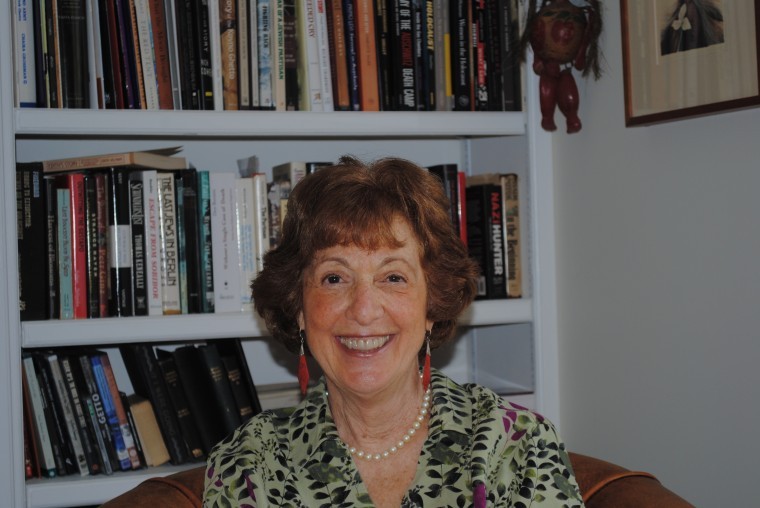For nonfiction writer Doreen Rappaport, the stories of Jewish resistance in Nazi occupied Europe that populate her latest book are symbols of empowerment.
Rappaport, 72, has written dozens of books bringing American history to children and adolescents, and is married to Robert Rosegarten, who served as the mayor of Great Neck Plaza for eight years before retiring in 2000.
But for Rapport, “Beyond Courage: The Untold Story of Jewish Resistance During the Holocaust,” represents a different direction born out of an librarian’s recommendation a decade ago.
“I was in the 42nd street library in the Jewish room… and I was working on a book [about] Jewish Americans,” she said, when a librarian handed her an anthology of armed resistance stories during the Holocaust. “About a week or so later, when I was at kind of a break in my own research, I began to open this up and began to read these incredible stories about Jewish partisans.”
“Beyond Courage,” published in September by Candlewick Press, is a complement to Rappaport’s body of work about the struggles faced by women and minorities in the United States. Rappaport described what she saw as parallels between anti-Nazi actions in the Holocaust and the American civil rights movement – the secret schools, protest songs and long marches towards freedom.
“Resistance in not just about armed resistance,” she said.
Rappaport, whose biography “Martin’s Big Words: The Life of Dr. Martin Luther King, Jr.” has been read in New York schools and won Caldecott Honor and Coretta Scott King awards, grew up in Jamaica Estates, Queens and attended the city’s Performing Arts High School. She graduated from Brandeis University with a degree in music education and has taught at New Rochelle and New York City public schools.
Rappaport said the stories she read while researching for the book were inspirational even given the darkness of their circumstances.
“I hope it will be read by kids and their parents and I hope that it will give kids a sense of empowerment,” she said. “All of my books are about courage and empowerment.”
In the concentration camp of Theresienstadt, where the Nazi forces imprisoned over 150,000 Jews, teachers worked with children to create poetry of uncanny insight, Rappaport said.
“The poems are not just poems. Some of them are just profound,” she said.
Rappaport was surprised and touched by the acts of emotional or spiritual resistance practiced by Jews across occupied Europe. She described underground celebrations of holidays, and young rescuers – 14, 15, 17 years old – who shuttled Jews out of occupied countries.
She also noted the resilience of those who did practice armed resistance – the partisans who sketched pictures and wrote poetry and letters while living in forests across Europe.
“They were guerilla warriors and they created villages of support for each other,” said Rappaport.
Rappaport spoke with particular amazement of Jack Kagan, a survivor interviewed for the book who helped an escape tunnel from Novogrudok labor camp in Poland.
She said that after reading Kagan’s memoir she began a six-month e-mail correspondence with the survivor, whose mother, father and sister died during the Holocaust.
“He came to London only knowing a few words of English and constructed a life,” she said. “It’s inspirational.”
Rappaport, who is Jewish but whose family did not live in occupied Europe during the Holocaust, said she has already witnessed the book’s impact on people in her life.
“It’s interesting that since I’ve done this book, lots of my friends who never talk about their grandparents call me up and talk to me [about the Holocaust,]” she said.
Though she hopes the book will be read by people of all ages, Rappaport targets her writing at children – an approach that she says is not easy.
““It’s an incredible challenge… to tell a complex story without dumbing it down,” she said. “I really think they need these stories.”



